 Petzlover
Petzlover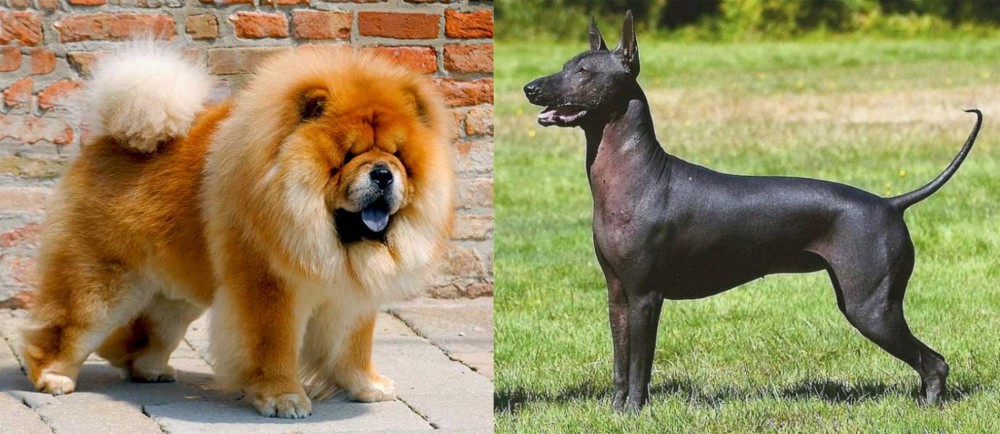 Chow Chow is originated from China but Hairless Khala is originated from Mexico. Chow Chow may grow 10 cm / 4 inches higher than Hairless Khala. Chow Chow may weigh 18 kg / 40 pounds more than Hairless Khala. Both Chow Chow and Hairless Khala has almost same life span. Both Chow Chow and Hairless Khala has same litter size. Chow Chow requires High Maintenance. But Hairless Khala requires Moderate Maintenance
Chow Chow is originated from China but Hairless Khala is originated from Mexico. Chow Chow may grow 10 cm / 4 inches higher than Hairless Khala. Chow Chow may weigh 18 kg / 40 pounds more than Hairless Khala. Both Chow Chow and Hairless Khala has almost same life span. Both Chow Chow and Hairless Khala has same litter size. Chow Chow requires High Maintenance. But Hairless Khala requires Moderate Maintenance
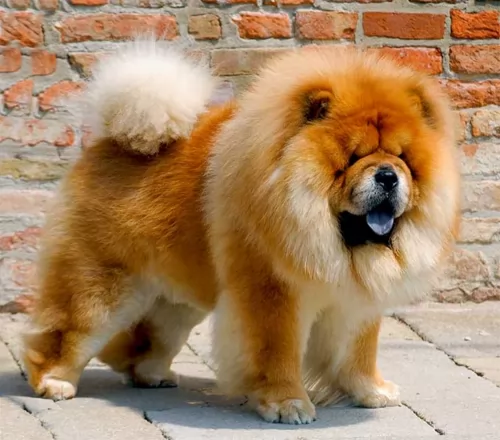 Northern China is the original home of the Chow Chow. In that region of China, the breed was known as the Songshi Quan – “the puffy-lion” dog. They have also been known in China as the “Dog of the Tang Empire” or the Tang Quan. The Chow is believed to be an ancient breed that the Foo Dog, or stone dog guardians of Buddhist palaces and temples, is modeled after. It is one of the most ancient of dog breeds that are still around today.
Northern China is the original home of the Chow Chow. In that region of China, the breed was known as the Songshi Quan – “the puffy-lion” dog. They have also been known in China as the “Dog of the Tang Empire” or the Tang Quan. The Chow is believed to be an ancient breed that the Foo Dog, or stone dog guardians of Buddhist palaces and temples, is modeled after. It is one of the most ancient of dog breeds that are still around today.
It is believed that they have existed for around 2000 years or perhaps even as far back as 3000 years, starting out in Mongolia and migrating to China. The ancientness of the Chow Chow has been validated through DNA testing. In China all those centuries ago, the Chow Chow was born to be a working dog. They hunted, herded, guarded and pulled carts. They went on quests with the Mongolian armies when China was invaded, as well as when the Mongolians invaded the Middle East and Europe later on.
Today’s Canadian Kennel Club has about 350 Chows registered while the AKC gets 10,000 new registrations every year.
 The Hairless Khala is from a number of Latin American countries, and these countries have a variety of these hairless hounds.
The Hairless Khala is from a number of Latin American countries, and these countries have a variety of these hairless hounds.
The dogs are known by different names. Khala is the Bolivian Quechua Indian name and it means 'no clothing' - an absence of fur. Both Central and South America have their hairless dogs, descendants of ancestral dogs owned by the Incan Empire.
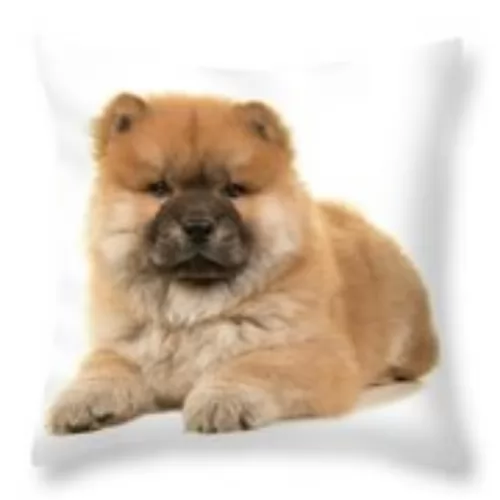 The Chow really does look like a small lion with a black tongue. The dog is sturdy and square with erect, small ears on a broad skull. They have a very dense double coat. Their eyes are deep set and look like almonds, while they all have that very distinctive purple or black tongue. Their lips are also distinctive with their blue color. The nose is black, but some Chows might have a blue nose. The tail is curly.
The Chow really does look like a small lion with a black tongue. The dog is sturdy and square with erect, small ears on a broad skull. They have a very dense double coat. Their eyes are deep set and look like almonds, while they all have that very distinctive purple or black tongue. Their lips are also distinctive with their blue color. The nose is black, but some Chows might have a blue nose. The tail is curly.
These are medium size dogs when it comes to height and weight, but they are powerfully built for their size. Their power is in their compact body holding the energy and strength of a much larger dog. Its hind legs are almost entirely straight, unusual for any dog. They get their lion appearance from the huge ruff that stands behind their heads. Their chest is broad and deep.
 There are 2 kinds of hairless Khalas – the Medio one which is a short legged dog which stands at roughly 36 – 41cm in height and weighs roughly 6 – 14kg. The other kind of khala is the Hairless Khala Grande, a long legged type.
There are 2 kinds of hairless Khalas – the Medio one which is a short legged dog which stands at roughly 36 – 41cm in height and weighs roughly 6 – 14kg. The other kind of khala is the Hairless Khala Grande, a long legged type.
Although the dog is hairless, you'll find some hair on the top of his head. For sake of space we'll refer to the Medio variety, a medium-sized hound with hairless skin which is dark grey in color.
The Hairless Khala is a friendly dog with his family but tends to be reserved with strangers. He gets on well with children in the home and because he isn't a particularly energetic dog, elderly people also find that he makes a super pet for them.
He is able to adapt easily to city- as well as country living. You need to be careful with him and not allow him out in the garden in the boiling sun as his skin can burn badly. Then again, without fur, he also tends to get cold easily.
He has dark brown eyes and the ears are fairly large in size and erect. He has a chest which is deep and broad and his tail is set fairly low and is held according to his mood.
He is an intelligent dog, and therefore easily trained. He is a loving, loyal dog who is capable of bonding closely with his human family.
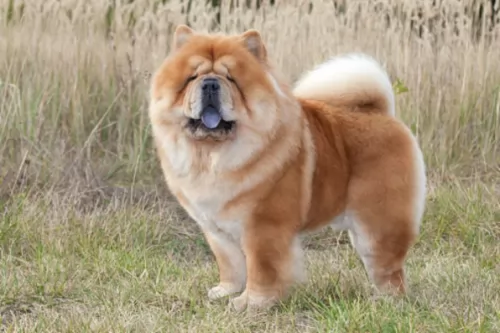 Loyal and true to their family and those they know; the Chow Chow is a little standoffish with strangers. They are very protective and usually attach themselves to one or two people. They are intelligent but stubborn, which can affect your training with them. They need to respect their people and Chows respect hose who take care of them. They can be aggressive toward dogs of their same sex especially if those dogs are the same breed as well.
Loyal and true to their family and those they know; the Chow Chow is a little standoffish with strangers. They are very protective and usually attach themselves to one or two people. They are intelligent but stubborn, which can affect your training with them. They need to respect their people and Chows respect hose who take care of them. They can be aggressive toward dogs of their same sex especially if those dogs are the same breed as well.
They are known to be very clean and many have compared them to cats in that regard. They appear to be dignified and refined. They are usually very quiet but very adaptable dogs.
 The Hairless Khala will make you an excellent pet, and children and the elderly are attracted to the dog because it is loving and docile. They are aloof with strangers, but training and socialization make him far more tolerant of strangers.
The Hairless Khala will make you an excellent pet, and children and the elderly are attracted to the dog because it is loving and docile. They are aloof with strangers, but training and socialization make him far more tolerant of strangers.
The Hairless Khala is an adaptable dog breed, and will adapt well to life in the city or in the country. Found throughout the Latin American nations, today he is essentially a companion dog, loving to be a devoted friend to his human family.
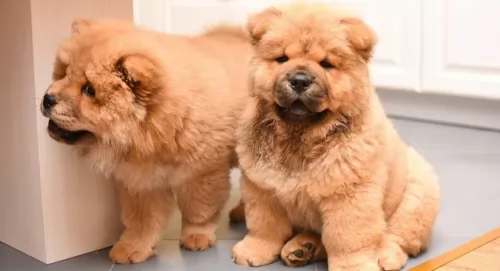 Although an ancient breed that obviously has survived many centuries of trials, the Cho Chow of today is prone to several different health conditions. These include:
Although an ancient breed that obviously has survived many centuries of trials, the Cho Chow of today is prone to several different health conditions. These include:
This condition can require surgery to keep the turning eyelid from injuring the eye ball.
This can cause lameness and arthritis.
This can cause lameness and arthritis.
Make sure you keep the ears clean and keep an eye on them.
 The life expectancy of this dog is 10-14 years when he is treated well. The Hairless Khala is a robust dog breed but even so, there are diseases to look out for -
The life expectancy of this dog is 10-14 years when he is treated well. The Hairless Khala is a robust dog breed but even so, there are diseases to look out for -
Skin allergies are one of the reasons you may have to take your Hairless Khala to the vet. These sorts of skin allergies can be frustrating for a dog because the skin is irritated and itchy and he may have scaly areas or red bumps on his skin. If your dog is licking and scratching frantically, you will need to get him to the vet.
Periodontal disease is inflammation of the gums, and if food and bacteria accumulate on the gums, it forms plaque and transforms into calculus, leading to gingivitis. Check your pet's teeth regularly and also brush them with special canine toothbrush and toothpaste at least 2 or 3x a week.
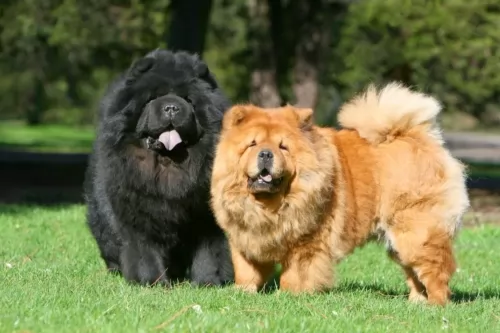 Don’t overfeed a Chow Chow as they are hard workers and big eaters. Feed them at least twice a day.
Don’t overfeed a Chow Chow as they are hard workers and big eaters. Feed them at least twice a day.
This eye disease can lead to blindness if not checked and treated.
These can be removed from an adolescent puppy.
Again, the Chow is susceptible to cancer.
Can lead to heart or kidney problems if left untreated.
Keep a close eye on your Chow Chow skin.
The Chow Chow was developed as working dog, but today’s version is more laid back and doesn’t need excessive exercise. Daily walks will suffice. They live very happily in the city if walked regularly. They are not really a competitive breed outside of obedience and confirmation. They are seldom seen in sports like agility or frisbee.
 He isn't a super energetic dog but still, he will need to be taken for a walk every day.You can also include typical games that all dogs love – fetching a ball or pulling on a rope.
He isn't a super energetic dog but still, he will need to be taken for a walk every day.You can also include typical games that all dogs love – fetching a ball or pulling on a rope.
Because of the dog having little or no hair, they are considered fairly hypoallergenic and also low maintenance. You'd need to brush a dog with fur, but a hairless dog requires different grooming.
Speak to your vet about bathing your dog, the type of body wash to use and how frequently it should be done. Because your dog is hairless, he may require a sun cream in the Summer and a jersey in the Winter.
He will also need his nails clipped and his teeth brushed as part of his grooming process.
He may not have much hair, but when it comes to diet he is much the same as any other dog. If you feed him commercially manufactured food, always choose the best quality one in accordance with his age, height and activity levels.
Home-made food is always a welcome treat for your pet, but whatever you feed him, make sure it has the necessary minerals and vitamins to ensure his health. Essential fatty acids will be needed to keep the skin moist. With too much washing, the skin of these dogs will become irritated, dry and flaking if he doesn't received a nutritious, balanced diet. Make sure he has constant access to fresh, cool water.
When in any doubt as to how to look after a hairless dog, speak to your vet.